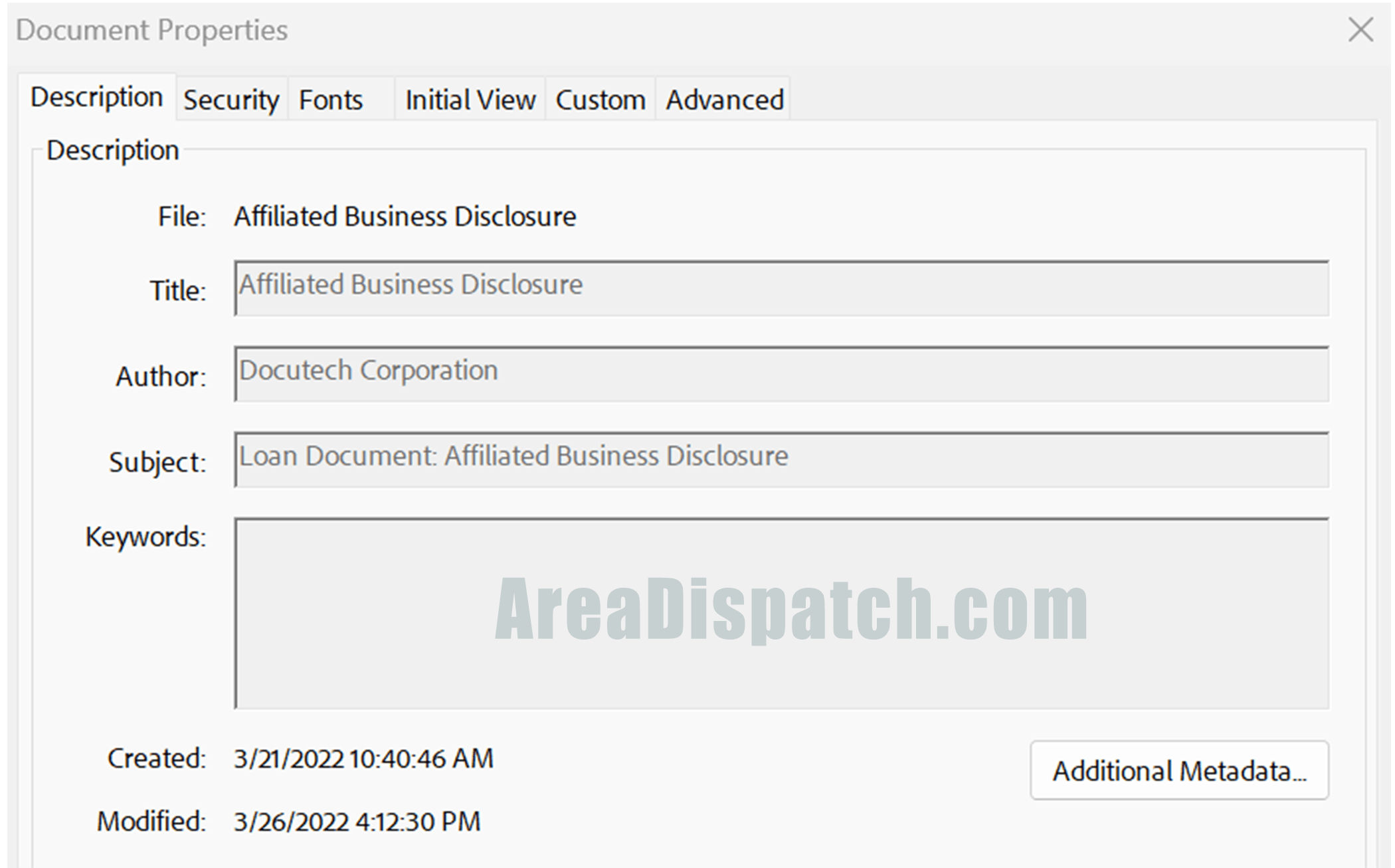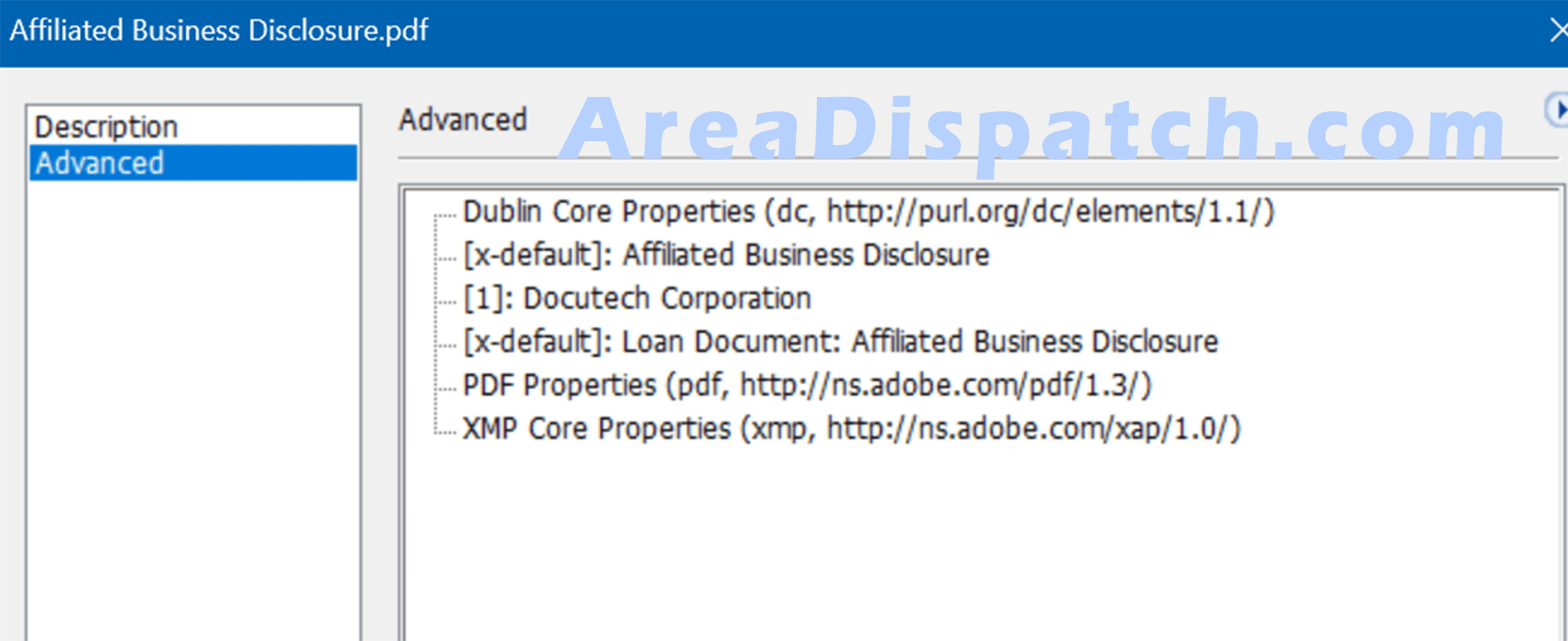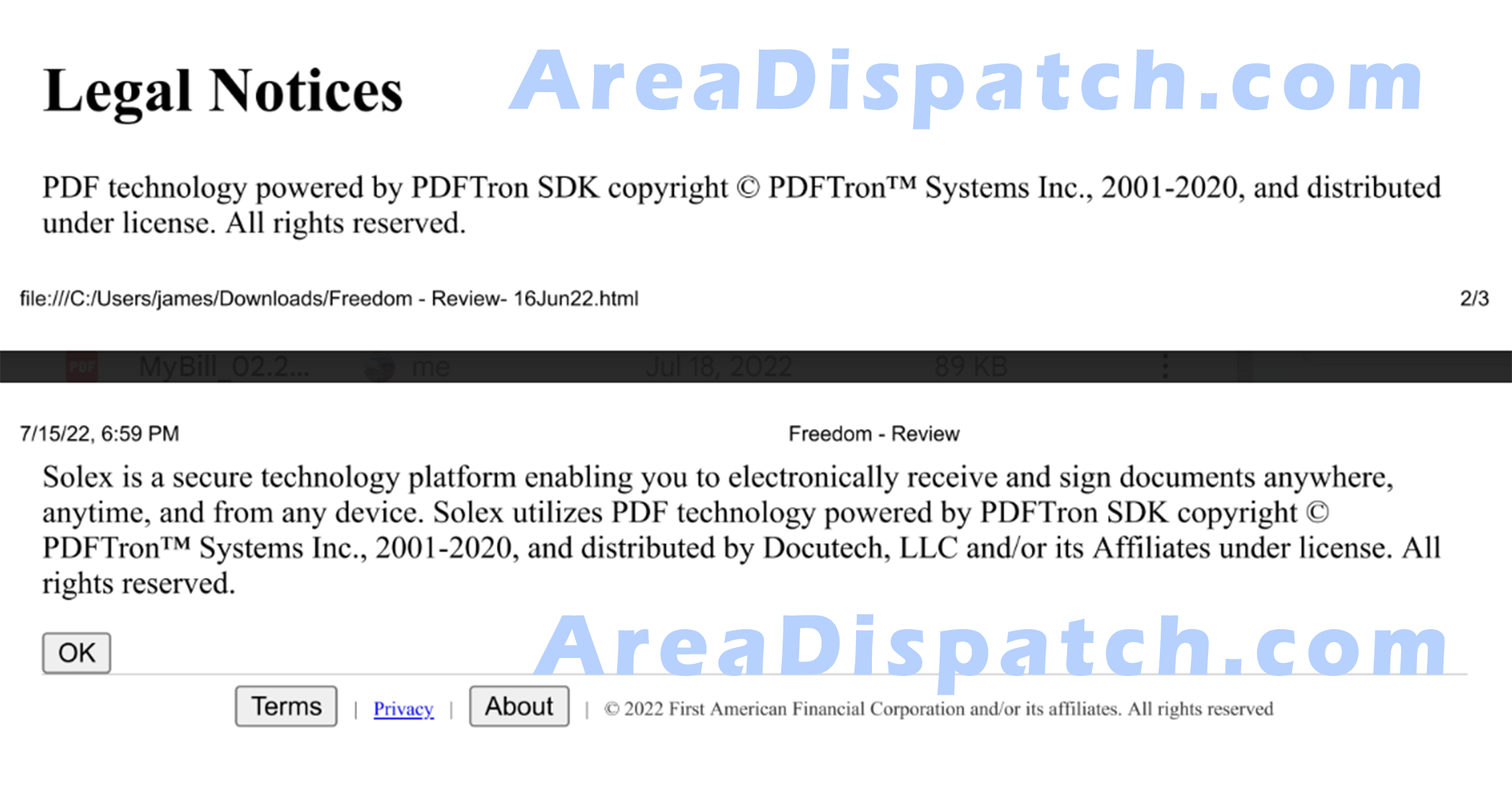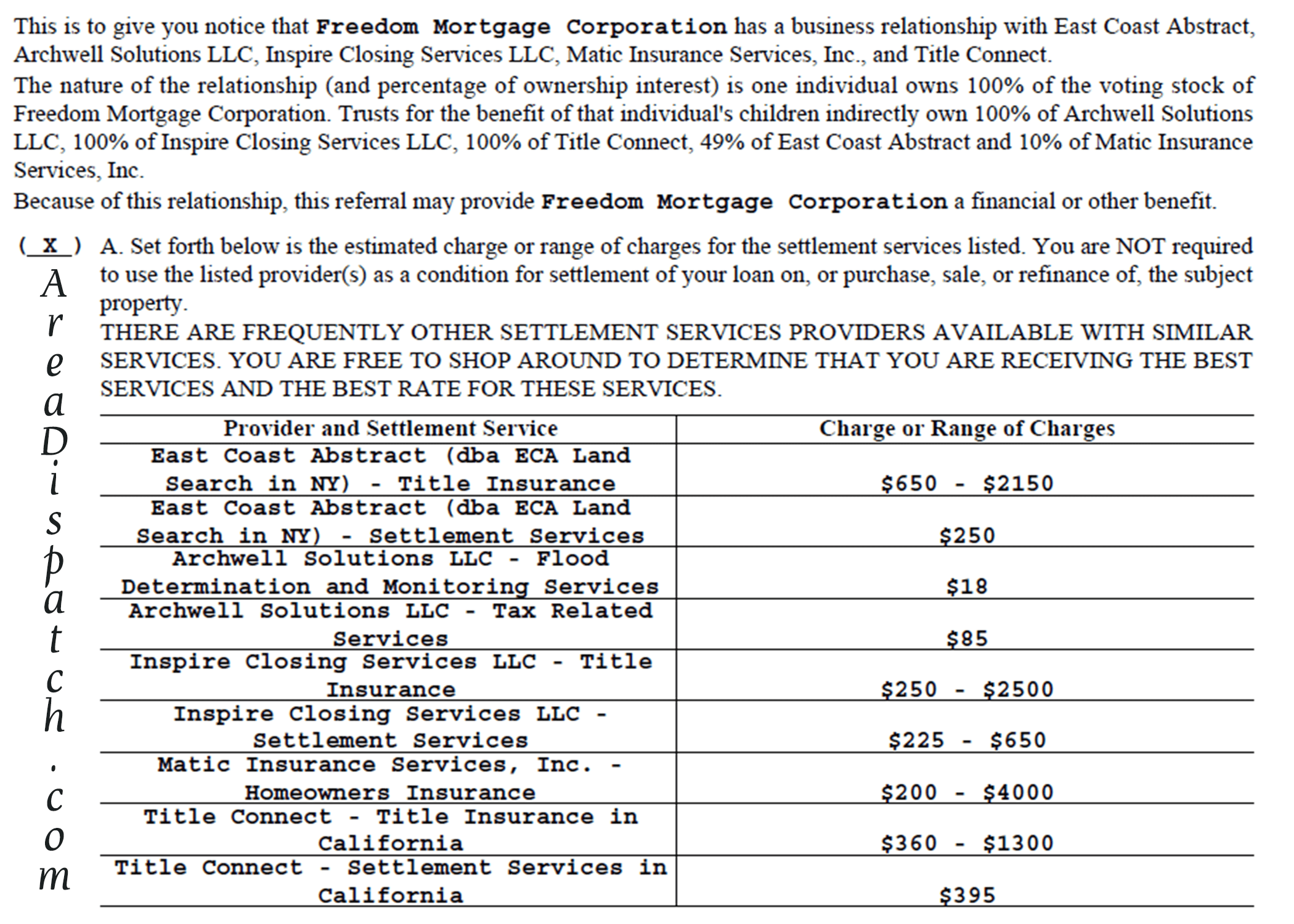A Compromising Flaw?



The screenshots above were taken of documents originally downloaded as a zip file. Following an incident where a Freedom Mortgage Corporation customer believes they experienced multiple attempts and successful acts to defraud them throughout a VA loan refinance process that unnecessarily protracted over six months, which the claimed victim alleges is part of the company’s devious, fraudulent scheme.
The documents in this zip file happen to be the only remaining documents from the refinance process that the likely victim retained. You may ask why they didn’t download the documents, but you would be surprised to know that they did. In fact, the zip file that had downloaded was an automatic feature and the victim wasn’t initially aware of the download. It wasn’t until long after complaints had been filed that the person was curious about a file with only numbers as a file name in the ‘Downloads’ folder.
The shocked Freedom Mortgage Corporation customer discovered, when initially gathering evidence for law enforcement, that everything they had knowingly downloaded was no longer on their computer or on the multiple cloud drives they had saved the information to. Only remnants of the final file they’d downloaded remained. They were able to piece together some of the remnants and came up with the information below.

Apparently, the Solex platform provides the owner of the documents, Freedom Mortgage Corporation in this case, the ability to recall those documents if they are on a device connected to the internet and have the ability to ‘phone home.’ Our understanding is that all of the documents within that process are recalled. Well, how did they retain the documents downloaded to the zip file. You’ll notice the real identification and substance of the document is down in the ‘advanced metadata.’ Our belief is that when the file was zipped it saw the coding in the advanced metadata as redundant and compressed this information. This compression prevented the code from executing and held the documents in the zip file with no way they could establish a connection ‘home.’
Without this ability, First American Financial Corporation would most likely have been fined more for the incident covered below:





$488,000 For The
Exposure Of Almost
900 Million Files
Containing Sensitive Information
Speaking of the Affiliated Business Disclosure…

